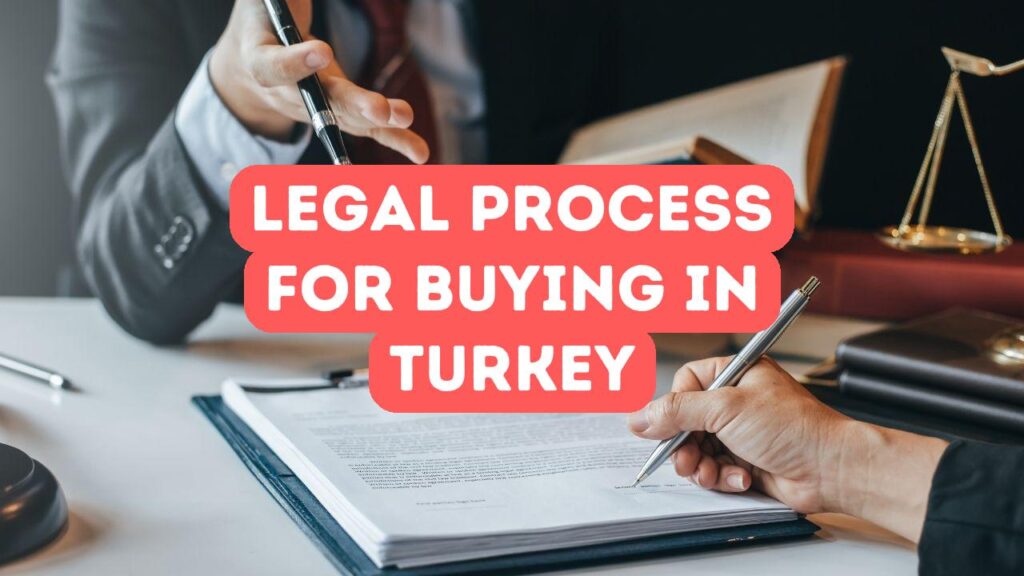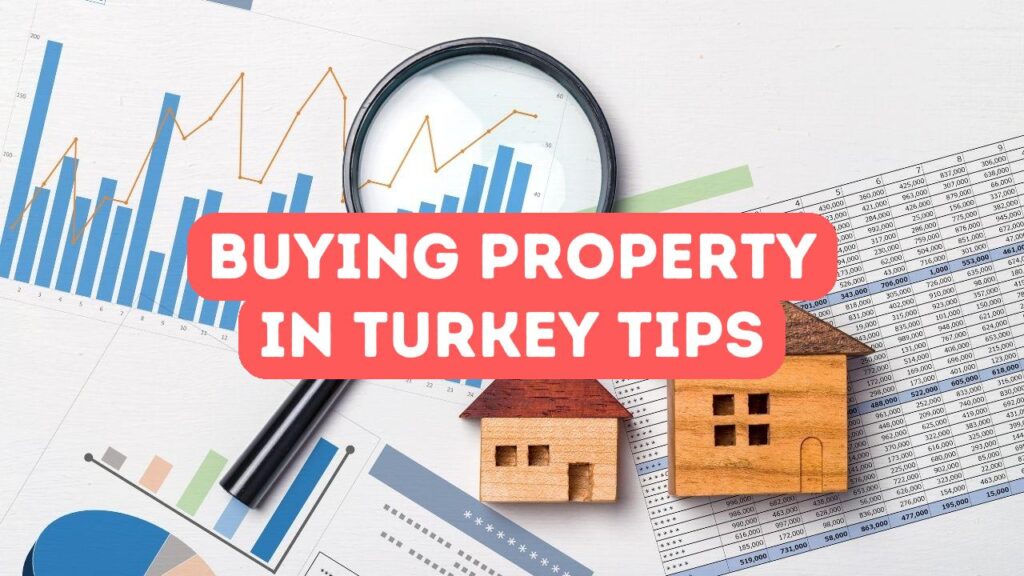Navigating the legal maze of property ownership in Turkey can seem daunting at first. With the country’s rich history and booming real estate market, understanding the legal requirements Turkey imposes is crucial. Why? Because knowing these property ownership laws is the key to a smooth transaction. Anyone buying property Turkey must first recognize the rights and responsibilities inherent in the process. Foreign ownership Turkey regulations add an extra layer to consider, ensuring that non-citizens can still make informed decisions. But don’t worry, with some guidance, anyone can unravel the intricacies. From assessing property rights Turkey offers to understanding how laws protect buyers, it’s all about being prepared. This preparation not only saves you headaches down the road but also places you in good stead for a successful investment in this vibrant nation. By grasping the essentials, you can confidently embark on your property journey in Turkey.
Understanding Title Deeds and Registration Processes in Turkey
Navigating the world of property ownership in Turkey begins with understanding title deeds and the registration process. A title deed, or “tapu,” is the golden ticket in property ownership laws; it confirms legal rights over real estate. Before buying property Turkey enthusiasts must grasp the essentials of obtaining this crucial document. Ensuring accurate information during registration guards both foreign ownership Turkey investors and locals from future disputes. Imagine title deeds as your property’s birth certificate, without which, ownership hangs in a fragile balance. The registration process demands precision; being exhaustive aids in transferring property rights Turkey securely. Investigate, verify, and ensure everything’s in order. From double-checking maps to validating seller’s credentials, it’s not just a paper chase—it’s fortifying your investment. With diligence in this arena, buyers can confidently navigate legal requirements Turkey presents and safeguard their newfound slice of the Turkish landscape.
Property ownership laws in Turkey hinge on the thoroughness of your title deed’s accuracy. When buying property Turkey, foreign ownership Turkey buyers and locals alike need to ensure this document mirrors every detail of their acquisition. Any hiccup at this stage could spell trouble down the line. So, treat the title deed with the same attention you would a contract’s fine print. Any discrepancies—be it in size, description, or location—can impede property rights Turkey offers. Double-check coordinates, compare property dimensions physically, and confirm seller declarations align with official records. Understanding the registration processes is crucial; it’s not merely signing papers but cementing your legal foundation. It’s about crossing your t’s and dotting your i’s. With meticulous preparation in these legal requirements Turkey demands, your path to securing a home amidst Türkiye’s picturesque landscapes becomes clearer and secure. Embrace it with steady resolve.
A critical step in the property ownership laws in Turkey involves notarizing your agreements. This formal acknowledgment of your buying property Turkey dealings ensures both parties’ commitments are hardwired into the legal system. Foreign ownership Turkey buyers must be especially prudent about this stage, as notarization underpins the country’s legal requirements Turkey insists upon. Think of the notary seal as your shield—a safeguard against potential disputes. Double-check all documents before notarization: your title deed, sales contract, and proof of payment. Verify the property rights Turkey highlights, ensuring all rights of access and usage are agreed upon. This process isn’t just an administrative formality; it’s a strategic chess move protecting your assets. Trust the notary’s experience to iron out any creases in the documentation, offering you peace of mind. This step solidifies your stake in the Turkish real estate market, paving the way for a smooth ownership journey.
Navigating Property Taxes and Legal Obligations
Understanding the legal requirements Turkey imposes on property taxes and duties is essential for any prospective buyer. Ignorance isn’t bliss when it comes to these obligations; it can lead to unexpected financial burdens. Property ownership laws in Turkey dictate specific taxes like the property acquisition tax, which is typically a percentage of the property’s declared value. Knowing what’s due upfront helps buyers budget accurately, avoiding surprises. Foreign ownership Turkey also involves special legal requirements, highlighting the need for thorough research. In addition to taxes, mandatory earthquake insurance and other legal duties safeguard your investment. Recognizing these requirements forms a cornerstone of smart investing. A solid grasp of these laws not only protects your wallet but also ensures compliance with all property rights Turkey enforces. Buyers who arm themselves with this knowledge step into the real estate arena with clarity and confidence, transforming legal complexities into manageable tasks.
Property taxes and legal obligations for buying property Turkey are critical to comprehend. When diving into property ownership laws, you’re diving into a pool of responsibilities that aren’t just financial—they’re legal, too. You’ll need to grapple with the property acquisition tax, a duty pegged to the value of your investment, forming an integral part of legal requirements Turkey demands. Foreign ownership Turkey brings added nuances, directing you through a confluence of both local and international regulations. Your quest involves lining up alongside property rights Turkey mandates, ensuring all legal obligations are ticked off without a hitch. Embracing this knowledge isn’t simply about compliance; it’s about solidifying your foothold in the market while respecting the layers of legal tapestry. This preparation becomes your linchpin, giving you the prowess to convert potential pitfalls into strategic steps on your property journey. In a nutshell, awareness transforms the daunting into doable.
Sure, let’s simplify the often opaque world of property taxes and legal obligations when it comes to buying property Turkey. As you journey through this process, it’s crucial to pay heed to the requirements Turkey mandates. Picture your path paved by property ownership laws designed to ensure fair transactions. Delve into the practicalities: securing earthquake insurance and aligning with property rights Turkey demands. Don’t shy away from the nuances foreign ownership Turkey entails; these are not hurdles but stepping stones. Each legal obligation is a step in a stairway leading to informed ownership, transforming uncertainty into mastery. By keeping a focused lens on these legal requirements Turkey enforces, you secure your investment’s future. Addressing these aspects squarely prepares you for smooth sailing in the Turkish property market, giving you more than just a foothold—but a firm grip on your new venture.
Essential Steps for Foreign Investors in Turkish Real Estate
Taking your first steps into the Turkish real estate market as a foreign investor requires a keen understanding of legal requirements Turkey has in place. Start by familiarizing yourself with property ownership laws specific to non-citizens. These regulations ensure a smoother journey when buying property Turkey. It’s not just about picking the perfect spot; prospective buyers must obtain the necessary documents, like a tax ID number and report from the Title Deed Registry. Equally important, securing a government-approved real estate appraisal helps confirm the property’s value. Intricacies of foreign ownership Turkey dictate that certain zones, such as military areas, are off-limits to non-citizens. Simultaneously, grasping property rights Turkey grants helps you stay ahead. Resources and experienced legal advisors offer invaluable guidance, ensuring your investment is legally sound and prosperous. With these foundational steps, you’re set to dive into the world of Turkish real estate with confidence.
Understanding the vital steps for foreign investors buying property Turkey involves more than just the paperwork—it’s about safeguarding your investment. First, it’s imperative to seek the counsel of a lawyer well-versed in property ownership laws. This ensures that all legal requirements Turkey imposes are met, providing peace of mind in your property venture. A thorough due diligence process is next on the list, involving checks on property debts and legal constraints, such as foreign ownership Turkey limitations. Be mindful of local property rights Turkey bestows, since these determine your ownership benefits. Engage with reputable real estate agents who can guide you through the ever-important property selection process. Their insights will help you navigate negotiations and contracts effectively. By following these essential steps diligently, you’re not only securing a home but investing in a piece of Turkey’s historic landscape, with its blend of vibrant culture and modern opportunities.
Buying property Turkey demands a meticulous understanding of all legal requirements Turkey enforces, especially for foreign investors. Recognizing Turkish property ownership laws is pivotal; they dictate every transaction aspect, from initial search to final settlement. A crucial step is opening a local bank account, as financial institutions in Turkey handle property-related transactions. Grasping these financial processes aligns closely with comprehending property rights Turkey extends. This comprehension ensures you’re meeting all foreign ownership Turkey stipulations. Additionally, obtaining earthquake insurance isn’t just wise—it’s mandatory, safeguarding your investment from natural uncertainties. Legal requirements Turkey outlines often include this provision to fortify property dealings. Engage with local experts who can offer guidance through these steps. Their support is invaluable, keeping every part of your endeavor in line with Turkish regulations. By following these essential steps, you’re well-equipped to embrace the opportunities within the dynamic Turkish real estate landscape.






